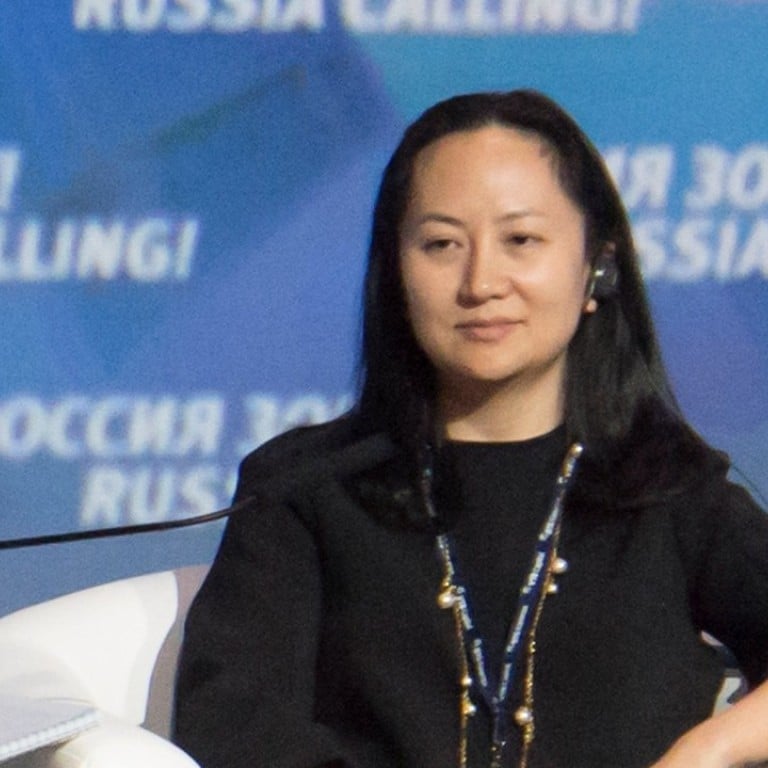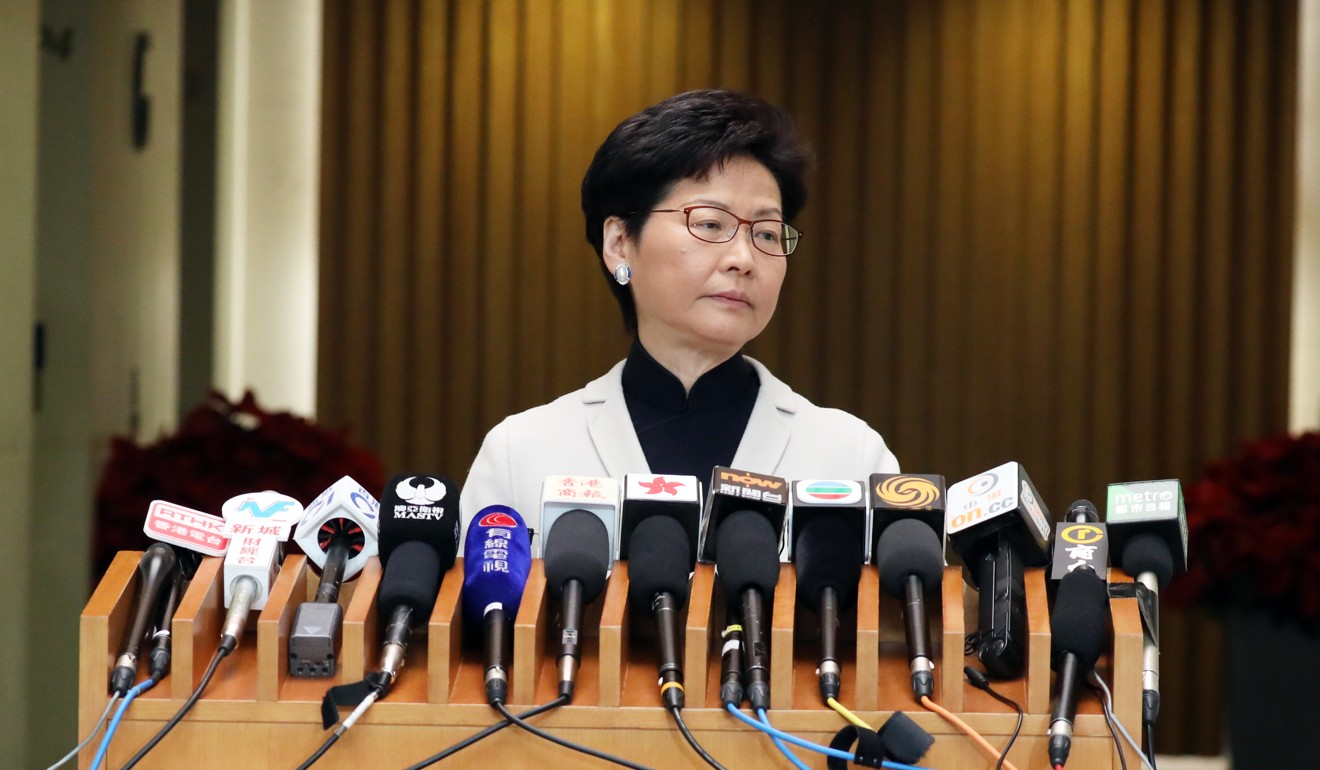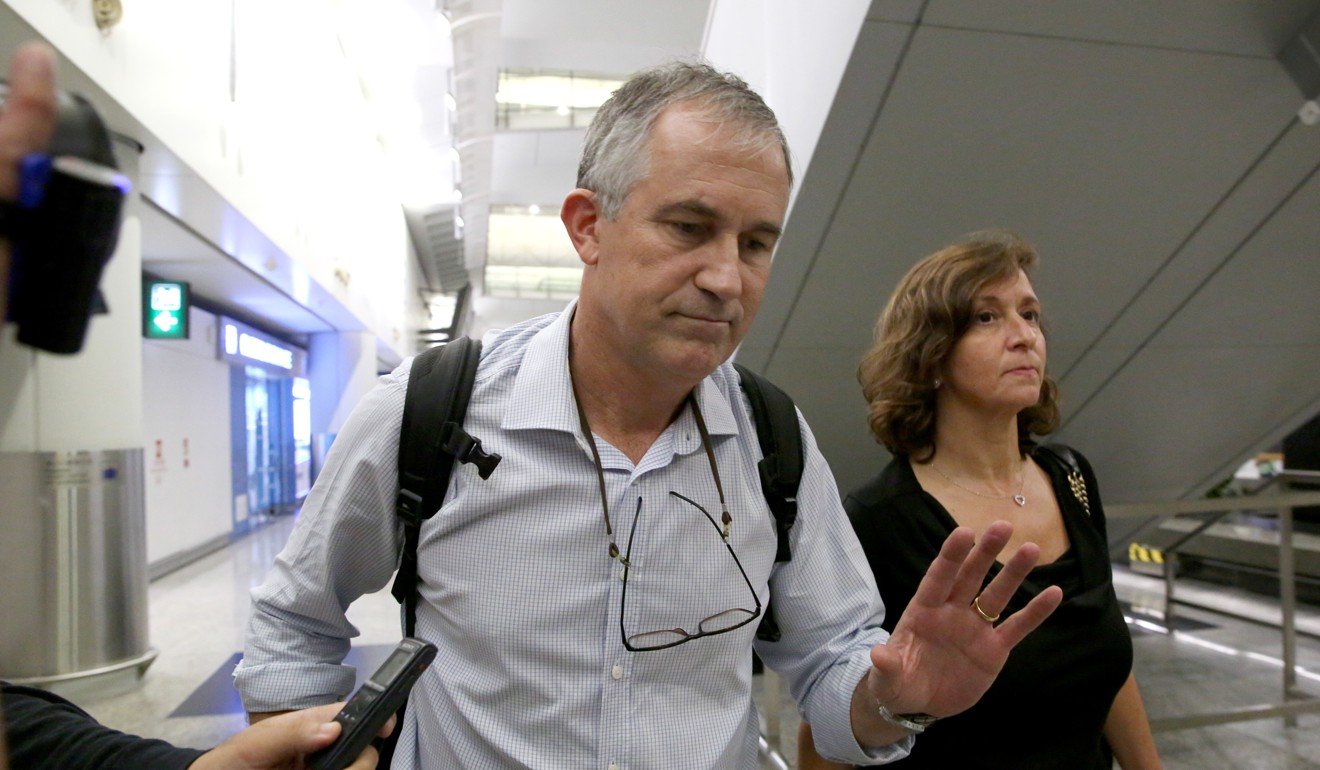
Hong Kong Chief Executive Carrie Lam says Sabrina Meng passport clarification could be seen as double standard after refusal to explain rejection of Victor Mallet’s visa
- Revealing information about Huawei chief financial officer Meng was exceptional case with potential for ‘dire consequences’, Lam says
- Government has declined to disclose why it refused to renew working visa of Financial Times Asia news editor Victor Mallet
Hong Kong’s leader has admitted that the government’s disclosure of a Huawei Technologies executive’s passport details could be seen as a double standard in light of an earlier refusal to explain why a British journalist’s visa application was rejected.
Chief Executive Carrie Lam Cheng Yuet-ngor on Monday said the case of Huawei chief financial officer Sabrina Meng Wanzhou was exceptional and warranted clarification to avoid “dire consequences”.
Meng, who was arrested in Canada on December 1 at the request of the United States for allegedly breaching trade sanctions with Iran, was found to possess three Hong Kong passports, as well as four from mainland China.
Chinese citizens are not technically supposed to hold passports from both places.

The city’s Immigration Department issued a statement on Monday night clarifying that only one of Meng’s Hong Kong passports remained valid.
However, the government in October refused to disclose its reasons for rejecting an application to renew the working visa of Victor Mallet, who was Asia news editor at the Financial Times. It said then that it would not comment on individual cases.
Arrested Huawei executive’s passport in order, says Immigration Department
When asked whether the government had double standards when it came to informing the public about immigration controversies, Lam said not every case warranted clarification.
“To some extent, you can say that,” Lam said.
“I’m not saying there is a double standard, but some cases could lead to dire consequences, so there is a need for clarification.”
Meng’s case, if blown out of proportion, could lead to some countries reconsidering their treatment of Hong Kong passport holders, Lam said, and therefore the government had made a balanced decision.
Lam stressed that only one Hong Kong passport in Meng’s possession was valid, while the rest had expired but may still hold valid visas.

“It is not uncommon to use a valid, current passport to travel … but also carry an old one with a visa that is still valid,” Lam said.
She again declined to disclose the rationale for the refusal of Mallet’s visa renewal application.
“Under normal circumstances, we want to uphold the standard that we will not publicly discuss individual cases,” Lam said.
The chief executive said an appeal by Mallet against the visa refusal was under review, and she would not rule out telling the journalist of the government’s considerations should she handle the case personally in the future.
Despite the lack of an official explanation, the visa denial was widely linked to a talk at the Foreign Correspondents’ Club in August which featured pro-independence activist Andy Chan Ho-tin, founder of the Hong Kong National Party. Mallet chaired the talk, as the club’s vice-president.
The journalist last tried to enter Hong Kong as a visitor in early November, but was denied entry after a grilling by immigration officers for hours.
No explanation was given for the denial, Mallet said at the time.
Britain, the US and the European Union all expressed concern over Mallet’s case and urged Hong Kong to explain the decision.

